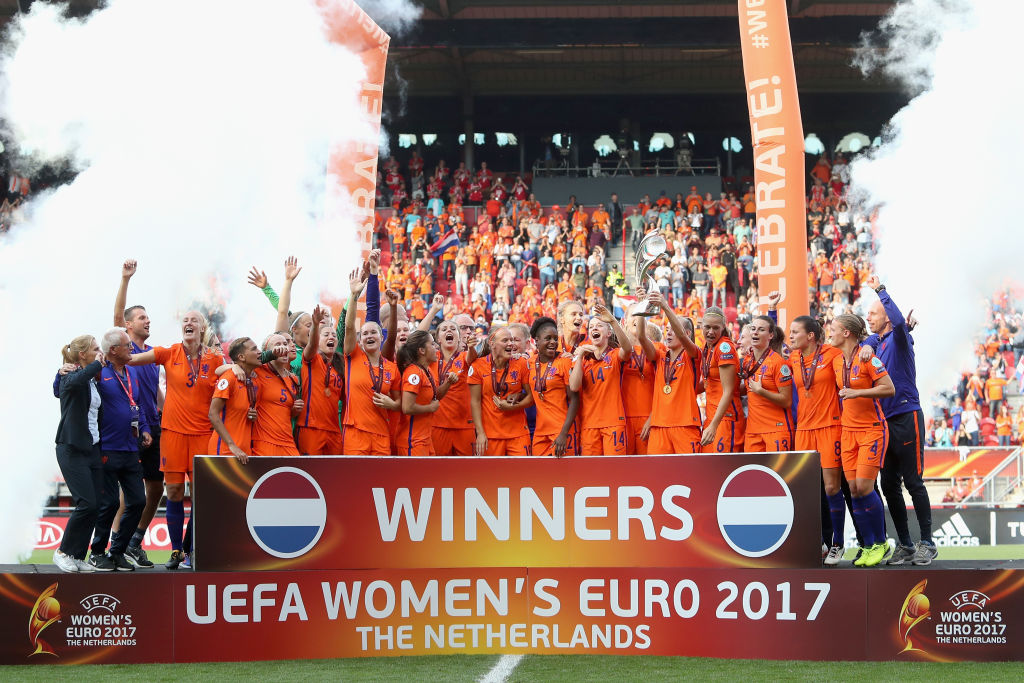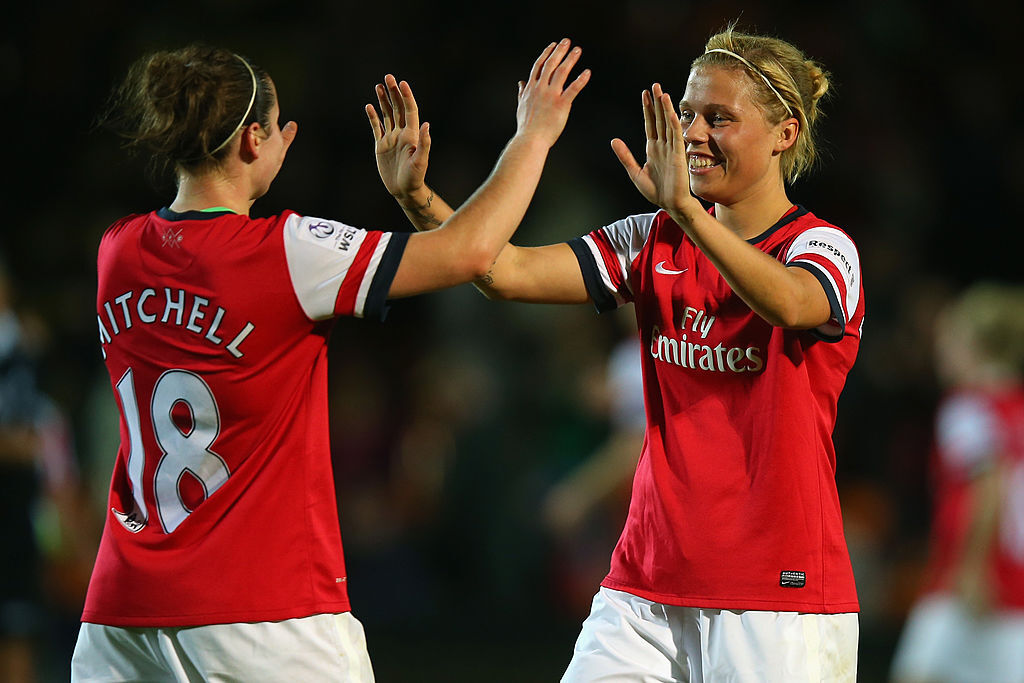Women’s Euros past winners: Who has won the Women’s Euros before?
The Women’s Euros past winners list is dominated by Germany who have won a record eight times

The Women’s Euros past winners list contains Sweden, Norway, Germany and the Netherlands.
The tournament has been hosted since 1984, with Germany winning it on eight previous occasions – they even had a six tournament consecutive winning streak between 1995 and 2013.
Women's Euro 2022 is, of course, being held in England – but the Lionesses are not among the previous champions.
Here, FourFourTwo takes a look at who has lifted the trophy...
Women's Euros past winners: 1984: Sweden
The first Women’s European Championship took place in 1984, with sixteen teams participating. It was not recognised as an official tournament because less than half of UEFA’s membership was involved. The winner of each of the four groups of four qualified for the semi-finals, which were played over two legs, home and away. Sweden beat Italy and England beat Denmark to reach the final where Sweden won the first leg at home 1-0 before England won their home leg 1-0 too. Sweden eventually won 4-3 on penalties.
1987: Norway
The 1987 European Championships was the first one to have an official host for the semi-final stage onwards, with Norway selected to hold the single-legged matches. England once again suffered heartbreak to Sweden, losing 3-2 after extra time in the semi-finals. However, it was the hosts Norway who walked away with the title, beating Sweden 2-1 in the final.
1989: West Germany
The 1989 competition took place in West Germany, and for the first time featured a quarter-final stage. The quarter-finals were played home and away as two-legged ties before the final four teams went to West Germany to play the remaining fixtures. West Germany reached the final by beating Italy in an epic penalty shoot-out where they met the holders Norway. Once again the hosts triumphed, running out 4-1 winners. It would not be the last time a German team got their hands on a European Championship trophy.
Get FourFourTwo Newsletter
The best features, fun and footballing quizzes, straight to your inbox every week.
1991: Germany
The 1991 tournament was the first official Euros as the eighteen teams who entered qualifying meant it was enough for UEFA to ratify it. There was a repeat of the 1989 final as Norway and Germany met again, with Germany eventually winning 3-1 after extra time.
1993: Norway
Having lost two consecutive finals to Germany, Norway managed to get their hands on the trophy once again as they beat hosts Italy 1-0 in the final. It meant that for four consecutive tournaments, the hosts had reached the final of the competition. Meanwhile, future England and Team GB manager Hege Riise was named Player of the Tournament.
1995: Germany
The 1995 Euros reverted to a system of double-legged semi-finals played home and away as Germany, England, Sweden and Norway made the final four. A freescoring set of fixtures Germany won 6-2 on aggregate whilst Sweden won 7-5. In the final, Germany beat Sweden 3-2, the first of what would turn out to be six consecutive Euros wins.
1997: Germany
In 1997, the competition introduced an eight team group stage as part of the actual tournament rather than just for qualification. Despite the expanded format, England failed to qualify. Italy, Spain, Sweden and Germany made the semi-finals where Germany beat Italy 2-0 in the final.
2001: Germany
Germany hosted the 2001 tournament as once again two groups of four participated. Germany, Norway, Denmark and Sweden made the semi-finals, with Germany facing Sweden in the final. With the game tied at 0-0, it went to extra time, where Claudia Müller scored a golden goal in the 98th minute to win the German’s third consecutive title.
2005: Germany
The 2005 tournament was the last time England hosted the competition. It was a disappointing summer for the hosts as they finished bottom of their group, with only one win over Finland thanks to an injury time winner from a 17 year old Karen Carney. Over 21,000 at Ewood Park watched Germany win the Euros again, as they beat Norway 3-1.
2009: Germany
The 2009 tournament brought about the expansion of the groups to three with twelve teams participating. England finished third in their group but made it through to the knock-out stages as one of the best third placed finishers. They beat Finland in the quarter-finals and the Netherlands in the semi-finals to reach their first final since the inaugural competition in 1984. However, despite goals in the final from Karen Carney and Kelly Smith, they could not stop Germany from winning a fifth consecutive tournament, eventually being thrashed 6-2.
2013: Germany
Sweden hosted the 2013 tournament, as England were unable to build on their success at 2009. They exited at the group stage in part due to a last minute goal from a 19 year old Alexia Putellas. A familiar line up of Germany, Norway, Sweden and Denmark made the semi-finals before (somewhat unsurprisingly at this point), Germany beat Norway 1-0 to secure their sixth consecutive title.
2017: The Netherlands
2017 saw The Netherlands play host to a 16 team tournament as the group stage was expanded to four. Scotland qualified for their first international tournament and ended up in England’s group. They were unfortunate to exit at the group stage having finished level on points with Spain and Portugal, but going out based on head to head record. There was a shock exit for Germany at the quarter-final stage, losing 2-1 to Denmark. England made it to the semi-finals but lost 3-0 to (current England manager) Sarina Wiegman’s Netherlands side, who went on to beat Denmark 4-2 in the final. They became the fourth hosts to win their home tournament.
Jessy Parker Humphreys is a freelance women's football writer. A Chelsea fan, Jessy has been following the women's game since being taken to the 2003/04 FA Cup final at Loftus Road and seeing Arsenal thrash Jessy's local side Charlton. Fortunately, Arsenal don't win quite as much as they used to – although Jessy hopes Charlton will also be back at the top of the women's game one day.
